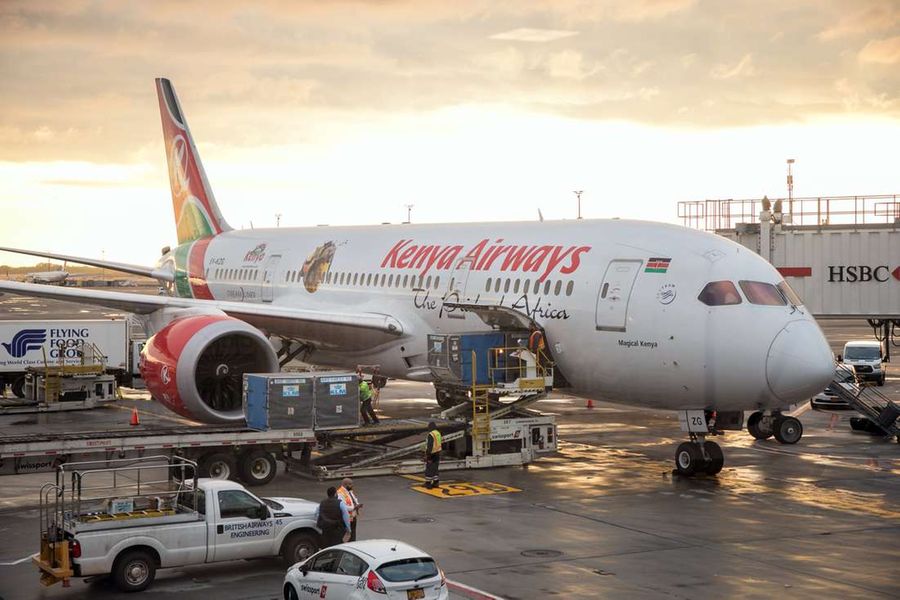Prime
Busia traders stuck with tons of oranges as Kenya shilling falls

Sacks of oranges and loaded trucks at Arubaine Market in Busia town last week. Many traders dealing in oranges are counting losses due to a low turnout of Kenyan buyers. PHOTO/DAVID AWORI
What you need to know:
- Kenyan traders have been the major buyers of the oranges; however, the falling Kenyan Shilling against the Ugandan currency is affecting their turn-up.
Close to 40 trucks carrying hundreds of tons of oranges are stuck at Arubaine border market in Busia town after failing to get buyers.
Kenyan traders have been the major buyers of the oranges; however, the falling Kenyan Shilling against the Ugandan currency is affecting their turn-up.
Arubaine market has been the main selling center for oranges from the Teso Sub-region, including the districts of Serere, Ngora, and Soroti, among others.
Mr Joseph Muduwa, a trader at Arubaine market, at the weekend said: “The orange business was booming, but that is no longer the case; I have been forced to throw away several sacks of oranges after they started rotting.”
Mr Maureen Nafula, another trader, says the trucks had brought oranges from Teso Sub-region, but have not been offloaded due to lack of buyers.
“We are beginning to see several of the oranges rotting away because we have no customers to buy them,” Ms Nafula said.
According to her, they have previously been selling close to 20 truckloads of oranges in a day, but that has since changed for the worse.
She says the majority of Kenyan traders have started driving to Teso Sub-region to buy the oranges directly from the farmers, raising her fear of losing capital secured through bank loans and village saving groups.
Mr Edirisa Tende, a transporter, says for four days, his truck has been waiting to have oranges offloaded, but that has not happened.
He further explained that for the past few weeks, he had been bringing oranges from Serere, Ngora and Soroti, and would have all of them sold and his money paid by the traders.
Mr Alfred Orenge, a Kenyan businessman from Kisii, who mostly buys oranges, says following the collapse of the Kenyan Shilling, buying goods from Uganda had become less profitable.
According to him, formerly, one would have KShs20,000 (about Shs700,000), but currently, the same amount only gets you Shs450,000.
He also cited the weather as another challenge, saying in Kenya, people prefer eating fruits when the weather is hot, but the current (cold) weather has caused a decline in the demand for fruits.
Ms Eunice Nabwire, another trader from Kenya, also says the shrinking Kenyan currency and high cost of transport was making it hard for them to trade across the border.

She says: “The profit margin is too low because of the declining value of our money against the Ugandan currency, which is affecting business.”
Mr George William Kayemba, also a trader, says the declining Kenyan Shilling from about KShs37 to KShs22 against the Ugandan currency has affected the turnout of Kenyan buyers.
Mr Kayemba says the fact that Kenyans are now buying directly from farmers, many youth in the market, who were doing the offloading, loading, re-bagging, and cart-pushing have lost jobs.
“When a single truck enters this market, it provides jobs to 30 youths and when businesses fail the way it is happening, many have been denied the very means of survival,” he said.
Mr Kayemba says it is high time the Ugandan government restricted non-nationals from directly dealing with farmers in the villages.
“In Kenya, we only buy from markets and they cannot allow Ugandans to move and get goods directly from the farmers,” Mr Kayemba further explained.
According to him, Uganda is more into promoting the East African Community (EAC) protocols than any other member state in the region, saying Kenya, Tanzania, Rwanda Burundi and South Sudan still have restrictions on non-nationals.
But Mr Godfrey Oundo Ongwabe, the national cross-border chairperson, however, says any move by traders to call on the government to restrict the free movement of nationals from member states will conflict with the East Africa trade protocols and free movement of goods and services.




